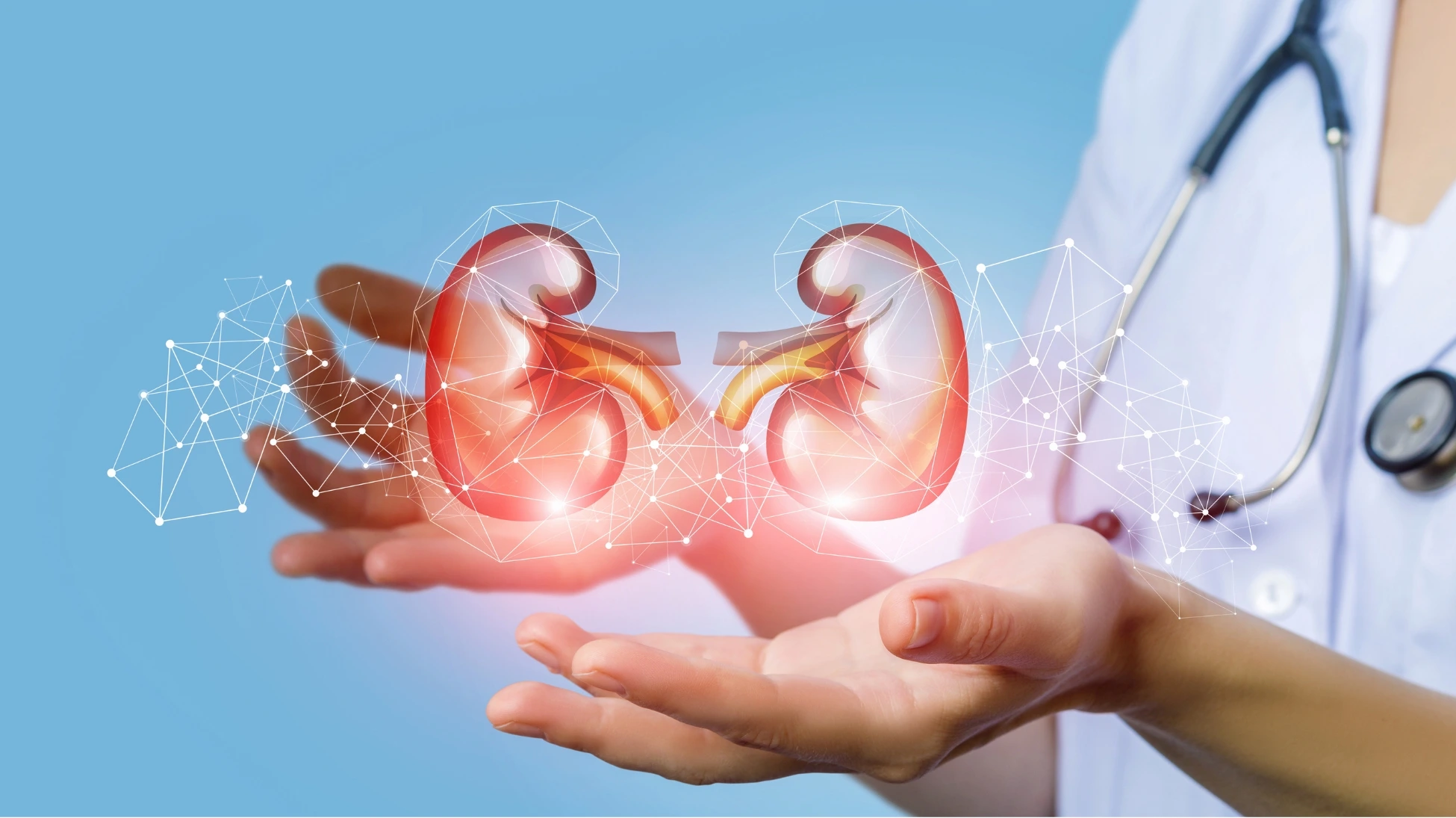Book Appointment Now

Understanding Kidney Health: How to Keep Your Kidneys Strong and Functioning
- On
- InMarine
Your kidneys may be small, but they play a powerful role in keeping your body healthy. Responsible for filtering waste, balancing fluids, and maintaining blood pressure, these bean-shaped organs work 24/7 to support overall wellness. Taking care of your kidneys is essential for preventing chronic diseases and maintaining a good quality of life.
Why Kidney Health Matters
Kidneys filter approximately 50 gallons of blood daily, removing toxins and excess fluids through urine. They also regulate electrolytes, produce hormones that help manage blood pressure, and promote the production of red blood cells. When kidneys don’t function properly, waste can build up in your body, leading to severe health issues like kidney disease, high blood pressure, and even heart problems.
Common Kidney Problems
- Chronic Kidney Disease (CKD): A gradual loss of kidney function over time, often due to diabetes or high blood pressure.
- Kidney Stones: Hard deposits of minerals and salts that form in the kidneys and cause severe pain.
- Urinary Tract Infections (UTIs): Infections in the urinary system that can spread to the kidneys if untreated.
- Acute Kidney Injury (AKI): A sudden loss of kidney function, usually caused by severe dehydration, infections, or medications.
- Polycystic Kidney Disease (PKD): A genetic disorder that causes numerous fluid-filled cysts in the kidneys.
Signs of Kidney Problems
Kidney disease often progresses silently, with symptoms appearing only in the later stages. Be aware of these warning signs:
- Frequent urination, especially at night
- Blood in the urine
- Foamy or dark-colored urine
- Swelling in the legs, ankles, or feet
- Fatigue and weakness
- Persistent itching
- Difficulty concentrating
- High blood pressure
If you experience any of these symptoms, it’s important to consult a healthcare provider for further evaluation.
Tips for Maintaining Kidney Health
The good news is that many kidney problems are preventable. Adopting a kidney-friendly lifestyle can protect your kidneys and promote overall well-being.
1. Stay Hydrated
Water helps your kidneys flush out toxins and maintain fluid balance. Aim for at least 8 glasses of water per day, but adjust based on your activity level and climate.
2. Eat a Balanced Diet
A kidney-friendly diet includes:
- Low Sodium: Excess salt can raise blood pressure and harm your kidneys.
- More Fruits and Vegetables: Rich in vitamins, minerals, and antioxidants, they reduce inflammation.
- Lean Protein Sources: Opt for fish, poultry, or plant-based proteins.
- Healthy Fats: Choose sources like olive oil, nuts, and avocados.
3. Monitor Your Blood Pressure and Blood Sugar Levels
High blood pressure and diabetes are leading causes of kidney disease. Regular check-ups and lifestyle changes like reducing salt intake and maintaining a healthy weight can prevent complications.
4. Avoid Overuse of Pain Medications
Nonsteroidal anti-inflammatory drugs (NSAIDs) like ibuprofen and naproxen can harm your kidneys if used excessively. Consult your doctor for safer pain management options.
5. Quit Smoking and Limit Alcohol
Smoking and alcohol consumption can reduce blood flow to your kidneys, impairing their function over time.
6. Exercise Regularly
Engage in at least 30 minutes of moderate exercise most days of the week to maintain a healthy weight and manage blood pressure.
7. Schedule Regular Check-ups
Routine health screenings can detect kidney problems early. If you have risk factors like a family history of kidney disease, diabetes, or hypertension, your doctor may recommend additional tests.
Preventing Kidney Disease
Prevention is key to maintaining kidney health. Here are proactive steps you can take:
- Know Your Risk Factors: Age, genetics, and pre-existing conditions like diabetes or high blood pressure increase your risk.
- Follow a Low-Protein Diet if Advised: In some cases, reducing protein intake can ease the burden on your kidneys.
- Manage Stress: Chronic stress can contribute to high blood pressure and kidney damage. Incorporate stress management techniques like yoga, meditation, or deep breathing exercises.
When to Seek Medical Help
Early diagnosis and treatment can slow the progression of kidney disease. If you have symptoms of kidney problems or are at higher risk, consult a healthcare provider promptly. Routine blood tests, urine tests, and imaging studies can assess your kidney function.
How SSMA Can Help You Stay on Top of Your Kidney Health

Navigating healthcare can be especially challenging when you’re away at sea. That’s where Ship to Shore Medical Assist (SSMA) comes in.
SSMA supports the unique needs of seafarers by ensuring access to quality healthcare — both onboard and during shore leave. Whether you need early diagnostics, ongoing monitoring, or specialist consultations, SSMA connects you to a reliable network of medical professionals, including nephrologists, dietitians, and general practitioners.
With SSMA, you get:
- Timely Medical Support: Fast access to diagnostics and consultations before and after deployment
- Expert Guidance: Assistance in finding the right healthcare professionals for kidney-related concerns
- Coordinated Care: Personalized help in managing treatment plans, follow-ups, and lifestyle recommendations tailored to the demands of seafaring
Taking control of your kidney health is vital — not just for your time onboard, but for your life beyond it. Let SSMA be your medical partner in maintaining a strong, healthy body at sea and ashore.
Your kidneys work hard for you. Return the favor by prioritizing their health — with SSMA by your side.
